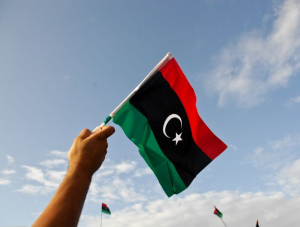By Daniel N.
In the absence of collective nationalism, the transitional government must buy the loyalty of renegade militias with resources it may not have.

Libya is currently undergoing a critical phase of its transition process, as the recognized government (NTC) attempts to assert its power over the country. The focal point of these efforts lies at the reformation of the Libyan national military. In post Gaddafi-Libya, this feat requires garnering the trust of powerful tribal militias, many of whom are reluctant to relinquish their hard-fought positions acquired during the civil war.
Efforts to establish a national military reached a crucial phase in January, when the NTC named Yussef Al-Mangush as chief of staff. The appointment has since been rejected by two powerful coalitions of tribal militias; the Thwars coalition, which includes the Misrata and Zintan factions; and the Cyrenaica Military Council (CMC), composed of militias in eastern Libya.
The NTC’s continued failure to reign in these tribes has translated into an extremely tense security situation, primarily in Western Libya. While sporadic clashes between factions continue in and around the capital of Tripoli, outlying areas of the country are showing continued signs of lawlessness. Such lawlessness is highlighted by frequent firefights with Tunisian border guards near the Ras Ajdir crossing, as well as the development of smuggling routes into neighboring Algeria, many of which are operated by Al Qaeda-linked militants.
In the capital, militias continue to make their presence felt, constantly harassing NTC officials at government buildings including courthouses and municipal installations. On January 3, Misrata militiamen attacked an old intelligence compound in the center of the city, seeking to rescue a comrade arrested by a rival faction. Four men were killed in the hours-long gun battle that ensued, as fighters used heavy weapons including rocket propelled grenades and heavy machine guns.
The January 3 clashes in Tripoli highlight the significant threat posed by a failure to reign in renegade militias. In Tripoli itself, the NTC’s two loyal militias which have been tasked with security are significantly outnumbered and outgunned by the Misrata and Zintan forces. With the realization that forceful disarmament is futile, the NTC has committed to negotiating with these militias, offering them more influence in the future government in exchange for their loyalties. Until now, such efforts by the NTC have not been successful. The appointment of a defense minister from the Zintan militia and his deputy from Misrata, have failed to garner the support of their respective tribes.
Meanwhile, the NTC’s military chief appointment has effectively rehashed an old altercation with Cyrenaica Military Council (CMC) tribes which began in July 2011, before the fall of Tripoli. This rift occurred when rebel commander General Fatah Yunis (Who hailed from a CMC tribe), was murdered in Benghazi. Yunis’s tribe accused the NTC of orchestrating his murder, but vowed to forgo demanding justice until the revolution had ended.
In addition to the inherent mistrust between various tribes who fought against Gaddafi, restoration of the economy is a key factor in restoring stability. Renegade militias are wary that disbanding their militias will put leave their young fighters without a source of income. As such, the NTC must not only work to restore national revenues, but convince these various tribes that they will all receive their fare share of resources. The Zintan and Misrata militias in particular have been extremely hesitant, as they feel that they should be allotted more resources given their central role in capturing Tripoli and ousting Gaddafi.
Libya’s efforts to restore its economy are currently based on resuming and ensuring oil production, in addition to receiving Gaddifi-regime funds frozen since the beginning of the revolution. Ensuring a continued flow of oil will become increasingly challenging, given that Libya’s vast drilling and pipeline infrastructure runs across tribally divided areas.
As foreign corporations resume their operations, tribal forces in these areas will become increasingly emboldened to use their strategic positions as leverage to demand more resources from the transitional government. In addition, there is a likelihood that extremist Islamist elements will seek to attack Libya’s vulnerable pipeline infrastructure in order to offset reconstruction efforts and foment stability. Al Qaeda leaders in both the region and in central Asia have already warned that their operatives had already infiltrated Libya under these aims.
Failure to rebuild the Libyan economy will cause significant setbacks in current progress achieved by the NTC, mainly with regard to public services. While high recruitment rates and a resumption of the education system are positive factors, these achievements will be short-lived if the government fails to ensure compensation for these civil servants.
As seen in recent weeks, political influence and resources – not nationalism – will be sufficient for enticing renegade militias to contribute to the rebuilding process. These militias only stand to gain from the current stalemate, as they understand that its prolongation only detracts from the NTC’s much needed legitimacy in the eyes of the world. As such, the NTC may find itself forced to make painful political concessions to these groups, as it has neither the money to buy their loyalty, or the firepower to coerce it. Failure to make these concessions threatens Libya’s future as a functioning nation-state, and compromises everything its citizens have fought so hard to achieve.
Concerned about business continuity in Libya? Click here to inquire about our custom intelligence packages.